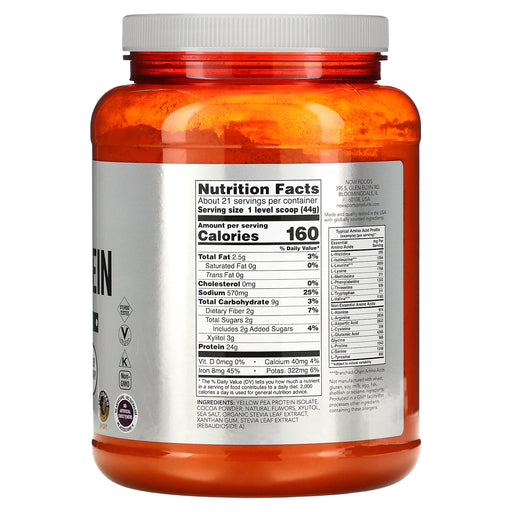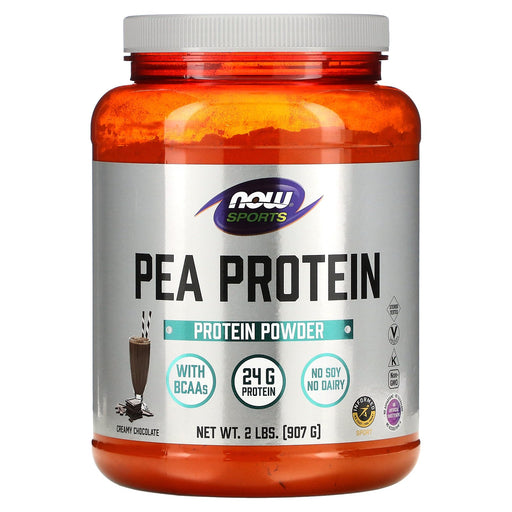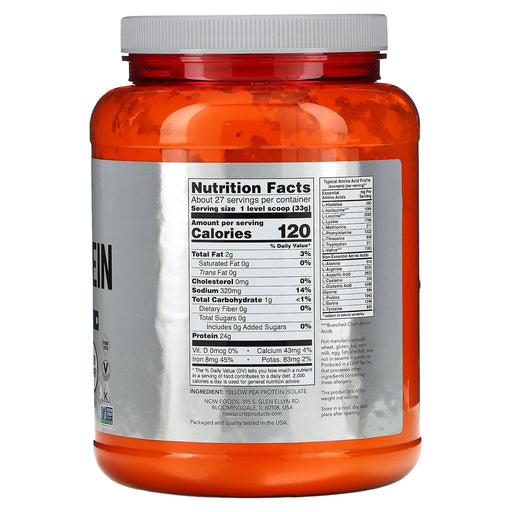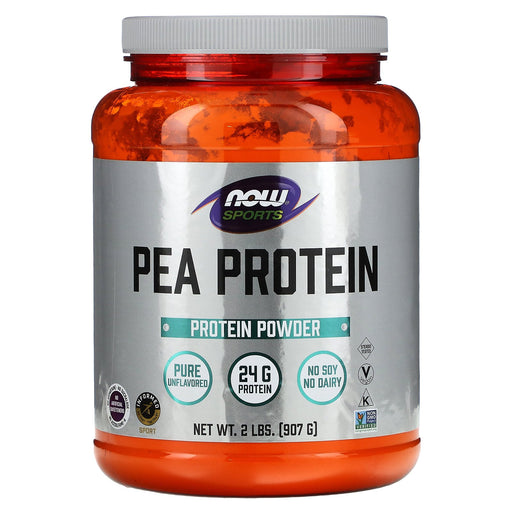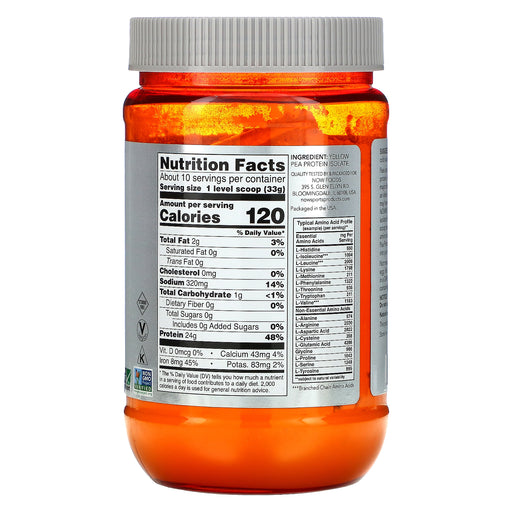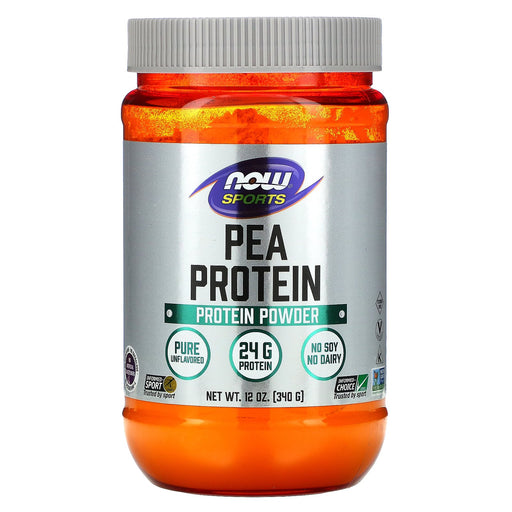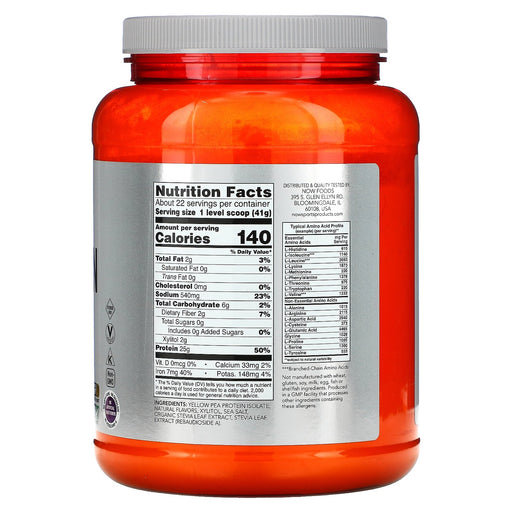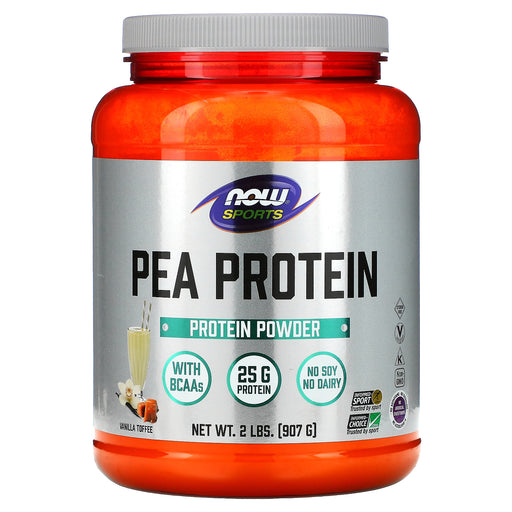
Unleashing the Power of Pea Protein for Muscle Growth and Overall Health
In the world of plant-based nutrition, pea protein has emerged as a superstar ingredient, offering a high-quality, easily digestible alternative to animal-based proteins. Derived from yellow peas, this vegan protein source is rich in essential amino acids, making it an excellent choice for those looking to support muscle growth, recovery, and overall health.
The Benefits of Pea Protein
Pea protein offers a range of potential benefits for health-conscious individuals, fitness enthusiasts, and athletes alike:
- Muscle Growth and Recovery: Pea protein is a complete protein, containing all nine essential amino acids necessary for muscle protein synthesis. Its rich content of branched-chain amino acids (BCAAs), particularly leucine, helps stimulate muscle growth and support post-workout recovery.
- Easy Digestibility: Unlike some other plant-based proteins, pea protein is highly digestible and well-tolerated by most individuals. It is naturally gluten-free and hypoallergenic, making it a suitable option for those with sensitivities to other protein sources.
- Heart Health: Pea protein contains beneficial compounds called purines, which have been shown to support heart health by promoting healthy blood flow and reducing inflammation.
- Weight Management: With its high protein content and low calorie count, pea protein can help support healthy weight management by promoting feelings of fullness and reducing overall calorie intake.
- Sustainable and Eco-Friendly: Pea protein is derived from a sustainable, environmentally friendly crop that requires less water and fertilizer compared to other protein sources, making it a planet-conscious choice for the eco-minded consumer.
Versatility in Pea Protein Supplements
Pea protein supplements come in various forms, making it easy to incorporate this plant-based powerhouse into your daily routine:
- Pea Protein Powder: The most common form of pea protein supplement, powders can be easily mixed into smoothies, shakes, and baked goods for a protein boost.
- Pea Protein Bars: Convenient and portable, pea protein bars offer a satisfying snack option for on-the-go nutrition and post-workout recovery.
- Pea Protein Blends: Many plant-based protein supplements combine pea protein with other complementary sources, such as rice, hemp, or chia, to create a well-rounded amino acid profile and enhanced nutritional benefits.
Maximizing the Benefits of Pea Protein
To fully harness the potential of pea protein, consider pairing it with other essential nutrients and adopting healthy lifestyle habits:
- Combine with Vitamin B12: As a plant-based protein source, pea protein lacks vitamin B12, an essential nutrient for energy metabolism and nervous system health. Pairing pea protein with a high-quality B12 supplement can help ensure optimal nutrient balance.
- Support with Digestive Enzymes: While pea protein is generally well-tolerated, some individuals may benefit from the addition of digestive enzymes to support optimal protein breakdown and absorption.
- Engage in Regular Exercise: To maximize the muscle-building and recovery benefits of pea protein, engage in regular resistance training and cardiovascular exercise, which stimulate muscle protein synthesis and support overall health.
- Maintain a Balanced Diet: While pea protein is a valuable addition to a healthy diet, it should be consumed alongside a variety of other nutrient-dense foods, including fruits, vegetables, whole grains, and healthy fats.
Experience the Plant-Based Power of Pea Protein
Whether you're a vegan, vegetarian, or simply looking to diversify your protein sources, pea protein offers a high-quality, easily digestible option to support your muscle growth, recovery, and overall health goals. With its rich amino acid profile, eco-friendly sourcing, and versatile supplemental forms, pea protein is a plant-based powerhouse that deserves a place in your nutritional arsenal.
Try our selection of premium pea protein supplements and unleash the potential of this vegan superfood for yourself. At Health Orchard, we're committed to providing you with the highest-quality, most effective plant-based supplements to support your journey toward optimal health and well-being.
Frequently Asked Questions about Pea Protein
1. Is pea protein good for you?
Yes, pea protein is generally considered a healthy and beneficial protein source. It is a plant-based protein derived from yellow peas, making it suitable for vegans, vegetarians, and those with allergies or sensitivities to animal-based proteins. Pea protein is rich in essential amino acids, particularly branched-chain amino acids (BCAAs), which support muscle growth and recovery. It is also easily digestible and may help promote feelings of fullness, aiding in weight management. Additionally, pea protein is hypoallergenic and typically well-tolerated by most people.
2. What are the side effects of pea protein?
Pea protein is generally well-tolerated, and side effects are rare. However, some people may experience the following:
- Digestive discomfort: Some individuals may experience bloating, gas, or diarrhea, particularly if they are not used to consuming high amounts of protein or fiber.
- Allergic reactions: Although rare, some people may be allergic to peas and could experience symptoms such as itching, hives, or difficulty breathing.
- Interference with nutrient absorption: Pea protein contains compounds called phytates, which can reduce the absorption of certain minerals like iron, zinc, and calcium. However, this effect is minimal and can be mitigated by consuming a varied diet.
3. Is pea protein powder safe for kidneys?
Pea protein powder is generally considered safe for healthy individuals, including those with normal kidney function. However, people with pre-existing kidney issues or those following a low-protein diet due to kidney disease should consult with a healthcare professional before adding pea protein to their diet. Consuming large amounts of protein, regardless of the source, can strain the kidneys, particularly in individuals with impaired kidney function. It's essential to consume pea protein in moderation and as part of a balanced diet, while staying hydrated to support kidney health.
4. Which protein is better, whey or pea?
Both whey and pea protein have unique benefits, and the choice between them depends on individual needs and preferences.
- Whey protein is a complete protein derived from milk, containing all essential amino acids. It is quickly absorbed and has a high biological value, making it popular among athletes for muscle growth and recovery. However, whey protein is not suitable for those with dairy allergies or following a vegan diet.
- Pea protein is a plant-based alternative, making it suitable for vegans, vegetarians, and those with dairy sensitivities. It is also a complete protein, rich in essential amino acids, particularly branched-chain amino acids (BCAAs). Pea protein is easily digestible and may help promote feelings of fullness.
Ultimately, the best protein choice depends on individual goals, dietary restrictions, and personal preferences.
5. Is it OK to have pea protein every day?
Yes, it is generally safe to consume pea protein every day as part of a balanced diet. Pea protein is a high-quality, plant-based protein source that can help support muscle growth, recovery, and overall health. However, it's important to consider your individual protein needs, which depend on factors such as age, sex, weight, and activity level. Consuming too much protein can lead to digestive discomfort and may strain the kidneys in some individuals. It's best to consult with a healthcare professional or registered dietitian to determine the appropriate amount of pea protein for your specific needs and goals.
6. Is pea protein better than egg?
Pea protein and egg protein are both high-quality protein sources, but they have some differences:
- Egg protein is a complete protein, containing all essential amino acids in optimal proportions. It has a high biological value, meaning it is easily absorbed and utilized by the body. Egg protein is also rich in nutrients like choline, vitamin D, and B vitamins.
- Pea protein is a plant-based protein that is also a complete protein source, containing all essential amino acids. It is particularly rich in branched-chain amino acids (BCAAs), which support muscle growth and recovery. Pea protein is hypoallergenic and easily digestible, making it suitable for those with allergies or sensitivities to egg or other animal-based proteins.
Both pea and egg protein can be beneficial for supporting muscle growth, recovery, and overall health. The choice between them depends on individual dietary preferences, allergies, and health goals.


